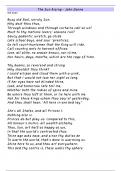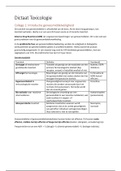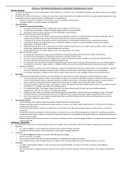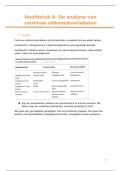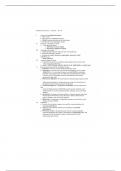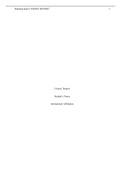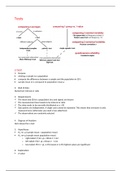Summary
Summary The Sun Rising IEB
- Course
- English Home Language
- Institution
- 12th Grade
"A detailed line-by-line analysis of a Grade 12 IEB 2025 poem, providing in-depth insights to ensure complete understanding and aid in exam preparation."
[Show more]
